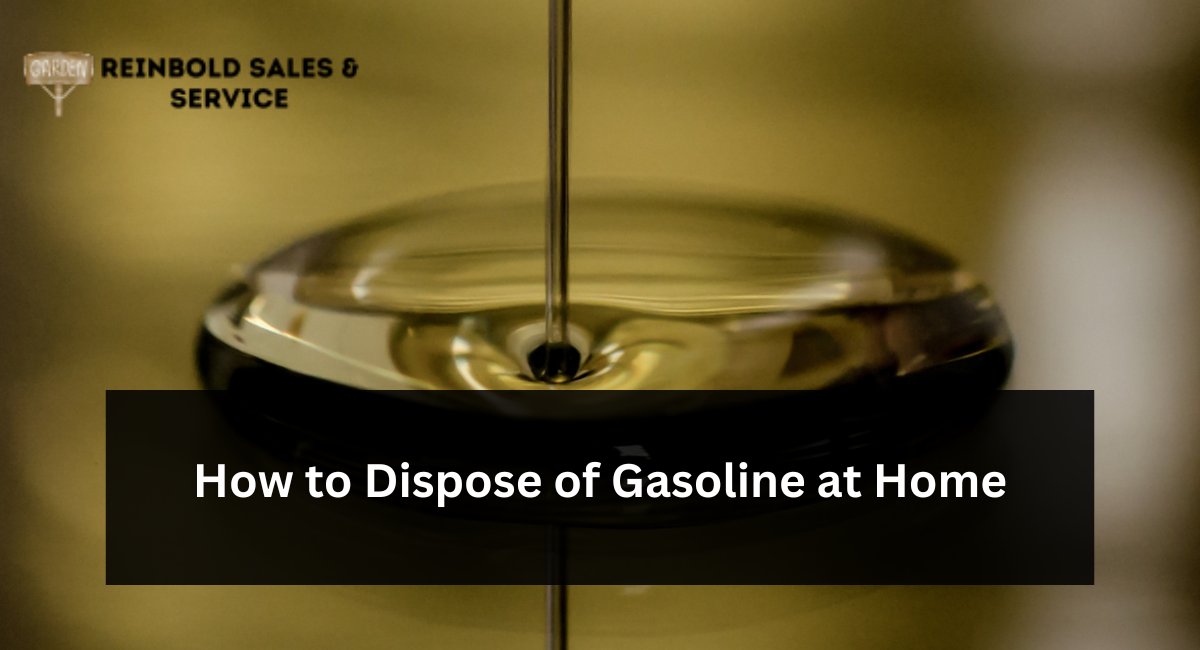Experts advise mixing any non-contaminated gasoline you no longer need in small engines like your weed eater or lawn mower with fresh fuel for the best results.
Do not dispose of gasoline down any drain or toilet, on the ground, or into a storm sewer, as doing so is detrimental to the environment and illegal.
Check with Your Local Fire Department
Gasoline is a highly hazardous chemical and must be handled carefully to avoid fire hazards and contamination of water sources. Simply throwing it in with regular garbage poses an increased fire hazard risk, while pouring it down the drain causes contamination to enter our drinking supply chain.
Your local fire department should offer excellent advice on safely disposing of old gasoline. First, ensure it is in an approved container marked UL Approved or FM Approved; these containers can be found at auto parts stores and online retailers.
Next, transport the container to a hazardous waste disposal facility. These differ from recycling centers in that you must call ahead to learn about their rules and hours; there may also be fees. If gasoline has spilled onto a non-absorbent surface such as asphalt pavement, use kitty litter or special pads designed for oily substances to absorb it before spraying an area with citrus-based cleaner to eliminate any remaining odors.
Pour It into a Safe Container
Gasoline is highly flammable, toxic, and corrosive; thus, it must be stored securely away from flames, sparks, or hot surfaces in approved containers only – random plastic bags or bottles could lead to leakage, fires, or explosions!
Before discarding old gasoline, test if it can still be usable. Pour some into a clear container alongside fresh fuel and look for any noticeable color differences – old gasoline tends to appear darker than new fuel and may contain particles of dirt, dust, or sediment at its base.
When disposing of old gasoline, use only government-approved containers. 5-gallon containers explicitly designed to transport gasoline are readily available at most gas stations and auto centers; funnel the gas slowly to prevent splashing or spilling before closing it securely for transporting. Be sure to wear a mask and respirator during this process in case gasoline vapors unknowingly enter your system.
Drive It to a Hazardous Waste Facility
If you need to dispose of large quantities of old gasoline, a hazardous waste disposal center is your best option for proper disposal. These locations specialize in disposing of chemicals like gasoline rather than recycling or repurposing them; contact your local government management department to locate an acceptable facility near you, and call ahead with any specific queries regarding restrictions, hours, or fees.
Be sure to transport gasoline in an Underwriters Laboratories (UL) or Factory Mutual (FM)-marked plastic safety container for maximum protection. Furthermore, keep it upright and away from anything hot or explosive which poses a fire hazard.
Do not discard gasoline down the drain or on grass as this pollutes soil and water sources and is toxic to plant and animal life, causing their deaths or serious illness. Furthermore, coming into direct contact with this liquid poses serious health hazards, as its contact can cause burns and irritation of the skin and eyes.
Leave the Lid Off
Whether used to fuel a vehicle or as part of a fire pit, unused gasoline can quickly degrade and become toxic over time. Not only is it bad for you and the environment, but disposing of it improperly in your yard could pollute water sources, kill grass, and start fires!
Opening up a container of old gas will allow it to evaporate, but be aware of potential fire risks; keep an extinguisher ready. In addition, wear flame-retardant gloves and eye protection as additional safeguards.
Keep gasoline stored in government-approved containers (not plastic bags or random buckets) with a spout, sold by most automotive centers and gas stations. When pouring, limit splashes and spills, and try not to place your face too close to the spout to reduce inhaling vapors from it – then close tightly afterward!
Conclusion:
Proper disposal of gasoline at home is crucial for safety and environmental reasons. By following appropriate methods, such as using approved containers and recycling facilities, you contribute to a safer and cleaner living environment.
